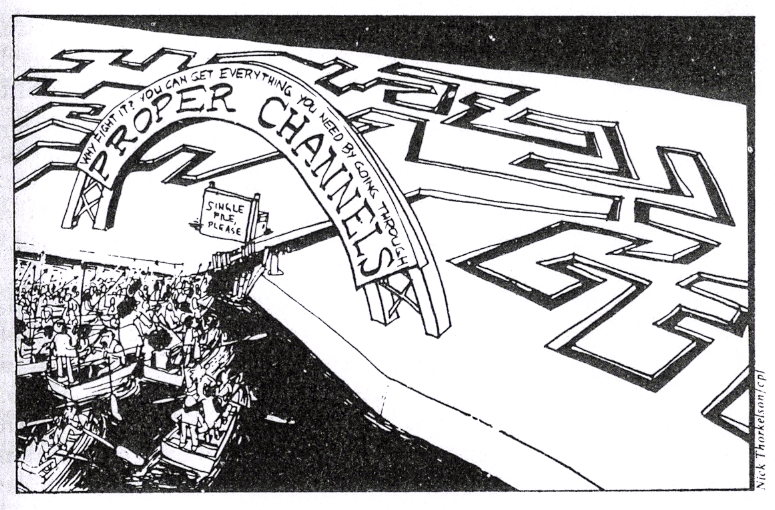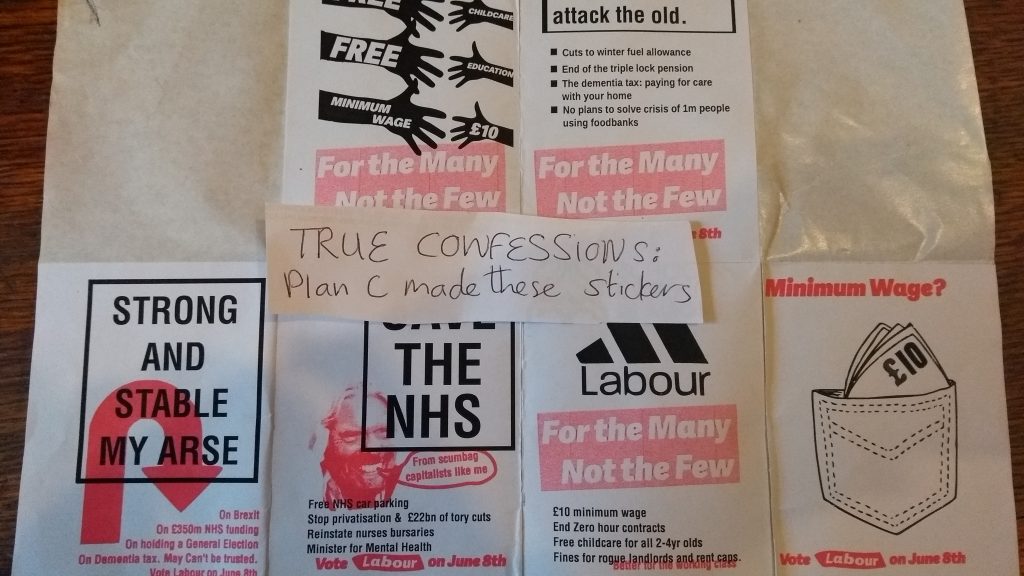We start off a series of articles on Corbynism below with some initial thoughts from a member of Plan C who attended The World Transformed 2017, a fringe event at the Labour party conference in Brighton organised by Momentum and others external to the LP. They were drawn immediately in the aftermath of that event and range in scope from observations pertaining to the composition of the event itself to the role of the contemporary autonomous left and the legacy this traditions holds over both the base of Corbyn’s supporters (both inside and outside the Labour party) and the leadership of the Labour party itself. It does not imply uncritical support for the Labour party, Momentum, or any such organisation and should not be read as such.
1) While conference ‘proper’ remains the sovereign body of the LP, the distinction between attendees at TWT and the official conference appears increasingly indistinct. For example, comrades radicalised in the 2010 student movement could be found on the conference floor (acting as delegates for CLPs) while MPs, policy wonks and party officials could be found in the debates hosted by TWT.
2) Content and ideas generated in the libertarian movements were platformed and debated by both the broader social movements and party officials at TWT. In this regard Plan C had a good outing- and found our ideas met and well received by those at the base and the ‘leadership’ of the party. At times it felt we were boxing above our weight and landing punches.
3) The roots of Corbyn’s journey into the LP- which was historically encouraged by comrades in the ‘autonomist feminist/Big Flame‘ milieu of the late 60s/70s were bought into the open and discussed. The ‘politics of care’ central to these organisations (and to Plan C) can be seen to be reflected back by the base of this movement through Corbyn’s speeches, policy initiatives and his sensibilities. The historical collapse of Big Flame into the LP needs to be discussed- what ‘gains were made and what was lost’ in that moment needs to be comprehended and contextualized if we are to learn lessons from the past that may inform an potential strategy for more formal engagement. These need to be understood within the realities of the present, which are of course different to those of the 70s/80s.
4) Its probably better for us to imagine the LP as a collection of tendencies and forms of politics as opposed to a top/down vertical structure with shared perspectives. This may allow us a better lens to perceive points of leverages or fissures through which we can apply pressure.
5) The possibility for wider democratisation in the LP seems within reach. The progressive component of the ‘LP assemblage’ is at war with many of its councils and needs the support of the wider social movements to increase the pressure to deselect LP officials who act against the interest of the class. This is not to argue that we should subsume struggle into the LP but to build upon the growing support among the class for a transformation of ‘politics as usual’.
6) It feels somewhat astounding that our ideas seem so close to those who may win the next election. In many cases, these may literally be two repeated conversations away. In his session ‘Governing from the radical left‘ John McDonnell reiterated an argument for being ‘in and against the state’ drawing on the arguments of comrades of his connected to the Conference of Socialist Economists. This is just one example among many that I can draw from debates at TWT over the weekend. It is here in these conversations that we should remain the most vigilant and challenge/level our criticisms of parliamentarian politics.
7) Obviously voting Labour won’t change the wage/labour relation. Workers will remain workers. Nevertheless a combative class movement is forming in its immediate shadow . Standing ‘outside’ of the movements influenced by Corbyn’s ascension to the top of the LP really doesn’t cut the mustard.
8) It’s warm under the wings of a dragon. Caution needs to be exercised but IMHO there is no other game that could build a mass movement at present (except perhaps from within the growing subjectivity of the ‘precarious worker’ -the zero-houred/under paid and the hyper-exploited). Any movement that could emerge and go beyond the limits (real or imagined) of the LP will almost certainly grow from within the base of the LP and its external support networks (think Momentum groups or Unite the Community groups- which are beginning, tentatively, to develop the ‘social reproductive infrastructure’ necessary to support workers and their families when they take strike action). So we need to get involved with these initiatives, argue our case for something larger than electoralism alone and get organised within these forms- but that doesn’t imply subsumption- we need to leave communication, exit strategies and back channels open. This is essential if we are not to be outmanoeuvred or defeated if Corbyn’s leadership collapses
9) The role of alternative media platforms, such as Novara, have proven their worth in establishing these links and orientating the content/sensibilities of this ‘broad church’ movement. They’re a scaffold around which the party is being re-made and the movements are being orientated- to paraphrase comrade Lenin. While left celebrity culture comes with its own risks and personal costs, its not without merit in the contemporary moment. We need more platforms like this. As a comrade said to me in passing ‘Lenin once noted that one Bolshevik was worth 50 Mensheviks, perhaps we could now state with some certainty that one connected/media savvy autonomist is worth 500 Bolsheviks.’



